DOI:
https://doi.org/10.38017/1657463X.595Keywords:
educational quality, unique day, standardized testsAbstract
This article emerges from the research titled “Is Unique Day a synonym for educational quality?” which seeks to observe the impact this program generates in a public educational institution in relation to educational quality. Hence, the objective is to analyze itself taking into account different sources, such as teachers, students, executives, test results, and institutional documents. By collecting both qualitative and quantitative data, the research is developed through a mixed approach with qualitative relevance. The results obtained through this research lead us to point out that extending students’ stay in the institution is not conducive to any improvement in the quality of education intended by the Ministry of Education. Therefore, it is concluded that the Ministry of Education relapses for a long time in the wrong evaluation of educational quality based on the results of tests, and from there programs are generated focused on improving academic performance, since a diagnosis or research that supports the application of these programs is not taken into account, which is why they have been implemented experimentally.
Downloads
References
Chaves, O. O. (2014). Veinte años de la Ley 115 de 1994. Educación y Ciudad, 27, 12.
Colciencias. (22 de Junio de 2018). PUBLINDEX. Obtenido de PUBLINDEX: https://scienti.colciencias.gov.co/publindex/
Dávila, F. L. (5 de Septiembre de 2018). politicas educativas en Colombia: en busca de la calidad. Recuperado de file:///C:/Users/PERSONAL/Downloads/4430-Texto%20del%20art%C3%ADculo-14802-1-10-20180220.pdf
Guevara, P. R. (05 de Septiembre de 2017). La calidad, las competencias y las pruebas estandarizadas: una mirada desde los organismos internacionales. Educación y ciudad, 12. Recuperado de http://www.idep.edu.co/revistas/index.php/educacion-yciudad/article/view/1658/1632
Hederich, M. C., Martínez, B. J., & Rincón, C. L. (2014). Hacia una educación basada en la evidencia. Revista Colombiana de educación N° 66, 36. Recuperado de https://docs.google.com/viewerng/viewer?url=http://revistas.pedagogica.edu.co/index.php/RCE/article/viewFile/2585/2425
Hernández, S., Fernández, C., & Baptista, M. (2006). Metodología de la investigación. México, México D.C: McGraw-Hill.
MEN. (31 de Diciembre de 2015). Mineducación. Obtenido de Mineducación: https://www.mineducacion.gov.co/1759/articles-355697_recurso_1.pdf
MEN. (23 de Abril de 2019). Mineducación. Recuperado el 2018, de Mineducación. Recuperado de https://www.mineducacion.gov.co/1759/w3-propertyvalue-51455.html
Ministerio de Educación Nacional de Colombia. (14 de Diciembre de 2017). Mineducación. Recuperado de Mineducación: http://www.suin-juriscol.gov.co/viewDocument.asp?ruta=Decretos/30034353
Pérez, D. F. (2018). Políticas educativas en Colombia: en busca de lacalidad. Recuperado de https://ciencia.lasalle.edu.co/cgi/viewcontent.cgi?article=1344&context=ap
Sandra García, D. M. (2014). Resumen y precisiones sobre Tras la excelencia docente: cómo mejorar la calidad de la educación para todos los colombianos. Revista Colombiana de Educación, 18. Recuperado de https://docs.google.com/viewerng/viewer?url=http://revistas.pedagogica.edu.co/index.php/RCE/article/viewFile/2872/2581





